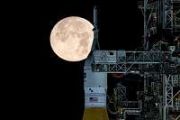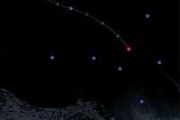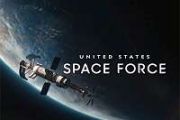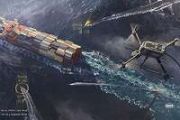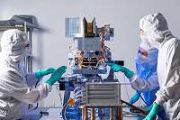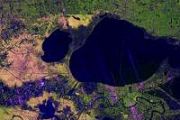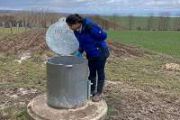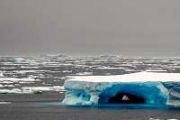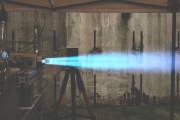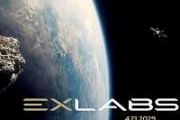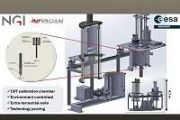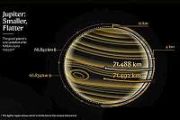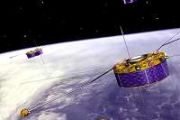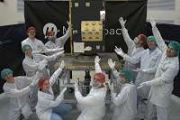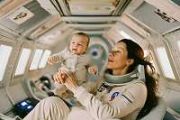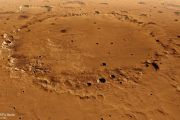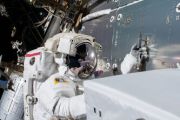
Copernical Team
Viasat and Rocket Lab unveil advanced data services for LEO satellites
 In a strategic move to enhance space communications, Viasat Inc. (NASDAQ: VSAT) has partnered with Rocket Lab USA, Inc. (Nasdaq: RKLB) to introduce a groundbreaking spacecraft bus and mission operation support for its upcoming hybrid space communications network demonstrations. These initiatives aim to showcase Viasat's comprehensive suite of multi-band, space-based communication services design
In a strategic move to enhance space communications, Viasat Inc. (NASDAQ: VSAT) has partnered with Rocket Lab USA, Inc. (Nasdaq: RKLB) to introduce a groundbreaking spacecraft bus and mission operation support for its upcoming hybrid space communications network demonstrations. These initiatives aim to showcase Viasat's comprehensive suite of multi-band, space-based communication services design Boeing Secures $439.6 Million Contract for 12th WGS Satellite from U.S. Space Force
 Boeing [NYSE: BA] has been awarded a significant contract valued at $439.6 million by the U.S. Space Force's Space Systems Command to develop the 12th satellite for the Wideband Global SATCOM (WGS) system. This initiative underscores the ongoing commitment to enhancing the United States' strategic communications infrastructure, providing the U.S. military and its allies with vital high-capacity,
Boeing [NYSE: BA] has been awarded a significant contract valued at $439.6 million by the U.S. Space Force's Space Systems Command to develop the 12th satellite for the Wideband Global SATCOM (WGS) system. This initiative underscores the ongoing commitment to enhancing the United States' strategic communications infrastructure, providing the U.S. military and its allies with vital high-capacity, DOD General Counsel Emphasizes Multi-Domain Lawyering in Space at Legal Conference
 In an address at the U.S. Space Command Legal Conference, the Honorable Caroline Krass, General Counsel of the Department of Defense (DOD), delivered a compelling vision for the future of space law. Her speech, titled "Space Law: Promoting the Rules-Based Order Through Multi-Domain Lawyering," underscored the pivotal moment we find ourselves in the realm of outer space-a domain undergoing rapid
In an address at the U.S. Space Command Legal Conference, the Honorable Caroline Krass, General Counsel of the Department of Defense (DOD), delivered a compelling vision for the future of space law. Her speech, titled "Space Law: Promoting the Rules-Based Order Through Multi-Domain Lawyering," underscored the pivotal moment we find ourselves in the realm of outer space-a domain undergoing rapid Muon Space's second EO bird, MuSat2, deployed and communicating
 Muon Space, an innovative space systems provider that is reshaping Earth monitoring from orbit, has reported the successful launch and operational readiness of its latest satellite, MuSat2. This marks a significant milestone for the company as it continues to push the boundaries of what's possible with satellite technology.
Launched on March 4 from Vandenberg Space Force Base aboard a Spac
Muon Space, an innovative space systems provider that is reshaping Earth monitoring from orbit, has reported the successful launch and operational readiness of its latest satellite, MuSat2. This marks a significant milestone for the company as it continues to push the boundaries of what's possible with satellite technology.
Launched on March 4 from Vandenberg Space Force Base aboard a Spac SpaceX tentatively sets third Starship test flight for March 14
 SpaceX plans to launch the third test flight of its Starship rocket as early as March 14 pending regulatory approval.
SpaceX stressed that the date is likely to change, which is common when it comes to developmental testing.
SpaceX said its third test flight will try successful ascent burns on its first and second stages, open and close Starship payload doors, perform a propellan
SpaceX plans to launch the third test flight of its Starship rocket as early as March 14 pending regulatory approval.
SpaceX stressed that the date is likely to change, which is common when it comes to developmental testing.
SpaceX said its third test flight will try successful ascent burns on its first and second stages, open and close Starship payload doors, perform a propellan SWOT Satellite Catches Coastal Flooding During California Storms
 In the wake of a series of atmospheric rivers that bombarded California with record rainfall and hurricane-force winds in February, the Surface Water and Ocean Topography (SWOT) mission has come under the spotlight for its critical role in capturing detailed data on the resultant coastal flooding. The satellite, a joint venture between NASA and the French space agency CNES, has demonstrated its
In the wake of a series of atmospheric rivers that bombarded California with record rainfall and hurricane-force winds in February, the Surface Water and Ocean Topography (SWOT) mission has come under the spotlight for its critical role in capturing detailed data on the resultant coastal flooding. The satellite, a joint venture between NASA and the French space agency CNES, has demonstrated its Terran Orbital Secures $15.2 Million Space Force Contract for Satellite Platforms
 Terran Orbital Corporation (NYSE: LLAP), a leading innovator in satellite-based solutions for the aerospace and defense industries, has recently announced a significant milestone in its ongoing contributions to national security and space exploration efforts. The company has been awarded a $15.2 million contract by the U.S. Space Force, facilitated through Axient Corporation, to provide Ambassad
Terran Orbital Corporation (NYSE: LLAP), a leading innovator in satellite-based solutions for the aerospace and defense industries, has recently announced a significant milestone in its ongoing contributions to national security and space exploration efforts. The company has been awarded a $15.2 million contract by the U.S. Space Force, facilitated through Axient Corporation, to provide Ambassad Rocking robotics training
 Image:
ESA astronaut candidate Raphaël Liégeois from Belgium during a robotics session as part of his basic astronaut training at ESA’s European Astronaut Centre, near Cologne, Germany.
Image:
ESA astronaut candidate Raphaël Liégeois from Belgium during a robotics session as part of his basic astronaut training at ESA’s European Astronaut Centre, near Cologne, Germany. Earth from Space: Ireland
 Image:
The lush landscape of the island of Ireland and the coasts of Scotland, Wales and England, are pictured in this view from the Copernicus Sentinel-3 mission.
Image:
The lush landscape of the island of Ireland and the coasts of Scotland, Wales and England, are pictured in this view from the Copernicus Sentinel-3 mission. Conversations with ESA Directors on International Women’s Day

For International Women's Day 2024, we're acknowledging the remarkable careers of the women in key Directorate positions at ESA: Simonetta Cheli, Geraldine Naja and Carole Mundell. Read about the impactful work, pivotal life experiences and their insights on fostering a more inclusive future.

